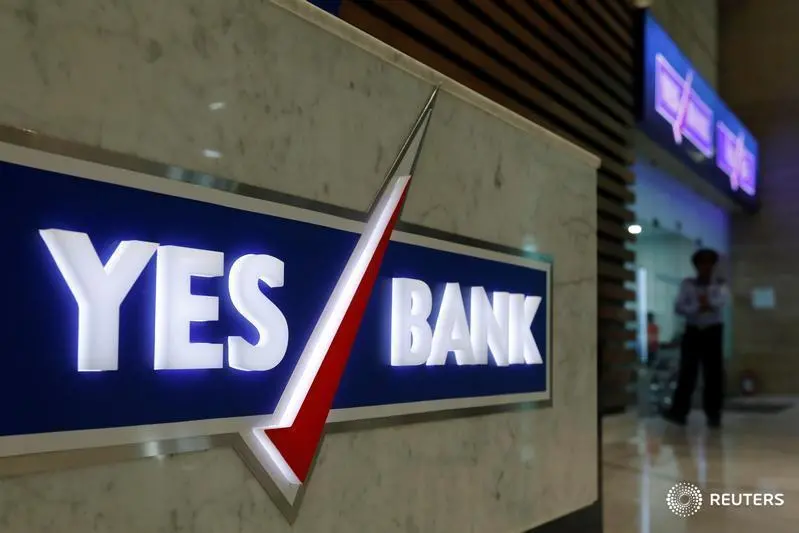PHOTO
MUMBAI - Yes Bank could use a helping hand. A plunging share price is making it difficult for India’s fourth-largest private sector lender by assets to raise capital. Any new investors are likely to demand a big stake. By yielding a little on ownership restrictions, the central bank can avoid allowing the pain to spread.
It’s been a tough ride for the now-diminished $1.2 billion lender, which grew rapidly after winning a licence around 2003 - about the same time as other startups like the now mighty $44 billion Kotak Mahindra Bank. Problems emerged in 2017, when the regulator found Yes Bank had underreported bad loans. The Reserve Bank of India then refused to allow founder and boss Rana Kapoor to stay on when his term ended.
Ravneet Gill, the ex-Deutsche Bank executive who took over this year, is struggling. The Indian economy is cooling fast and stresses are emerging, including in the property sector. The bank’s stock has fallen more than 80% this year, losing almost a quarter of its value on Tuesday alone. Yes Bank on Thursday also acknowledged that top bosses have sold shares.
There’s more bad news. The cash call the bank wants could water down existing owners’ investment by 35%, Gill warned in an interview with the Economic Times. Even that might be optimistic. The bank’s common equity Tier 1 ratio is 8.6%, above the regulatory requirement but, Credit Suisse notes, most private banks sit between 10 and 16%.
Showing some flexibility on ownership would be one way to usher in cash. Indian rules mean non-financial institutions need approval to hold more than 10% of private lenders. The RBI has also been wary of big-name industrialists, but these tycoons might more easily take a long-term view on a turnaround.
Allowing Yes Bank to flail would be the worst decision. Deposits have already shrunk 7.5% to $29 billion during the three months to end of September, declining faster than the bank’s loan book. Further pain could worry savers enough to steer clear of other private banks, and even possibly state ones.
India has no up-to-date framework on how to deal with troubled financial institutions. In the past, state rivals have been called on to mop up. With plenty of headaches already for India’s big lenders, bending the rules may at least stop Yes Bank from burdening taxpayers.
CONTEXT NEWS
- India’s Yes Bank on Oct. 2 disclosed that its deposits shrunk 7.5% to 2.09 trillion rupees ($29 billion) between June and September quarter. The bank said the next day that it did not see pressure from depositors withdrawing.
- The country’s fourth-largest private bank by assets also said that its gross advances declined about 4% to 2.32 trillion rupees, over the same period.
- Yes Bank added that its liquidity coverage ratio stood in excess of 125%, against a regulatory requirement of 100%.
- The figures were released ahead of the official financial results for the quarter.
- The bank’s shares have fallen 82% this year.
(Editing by Clara Ferreira Marques and Katrina Hamlin)
© Reuters News 2019





















